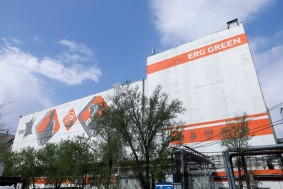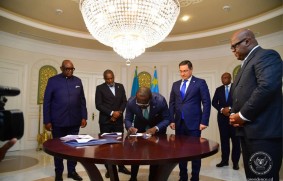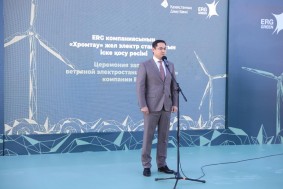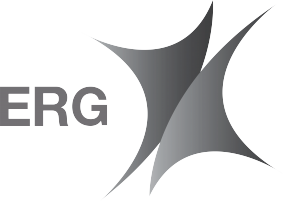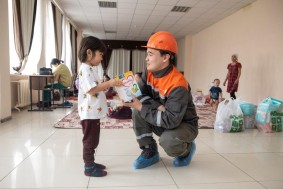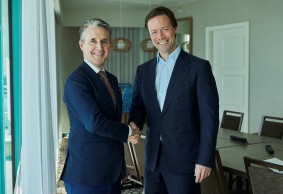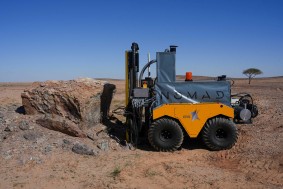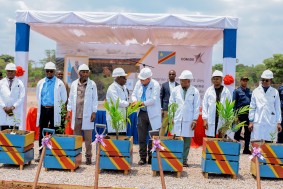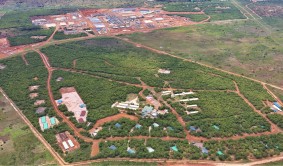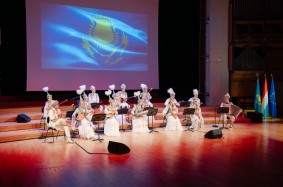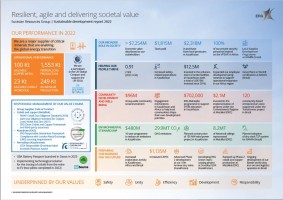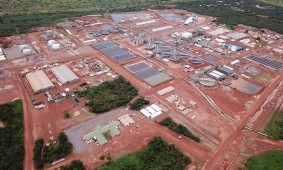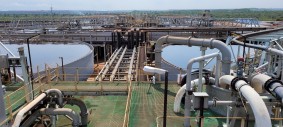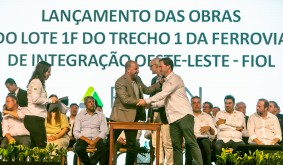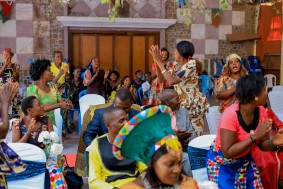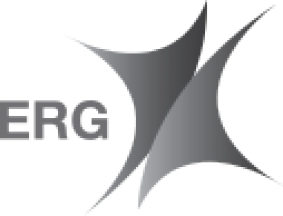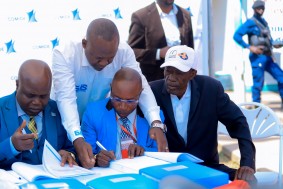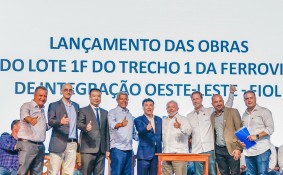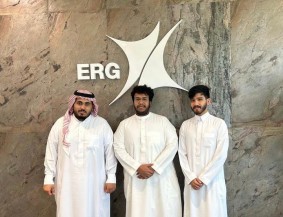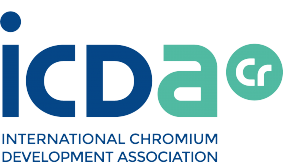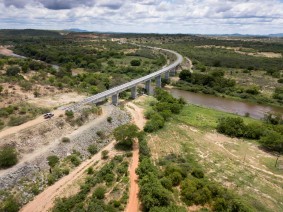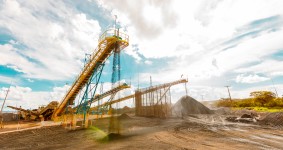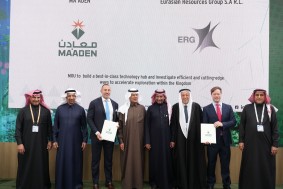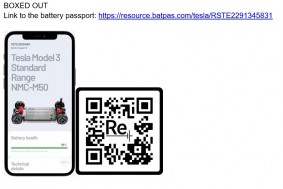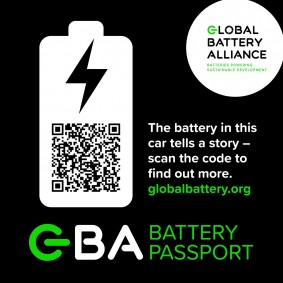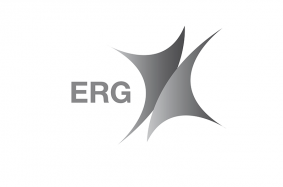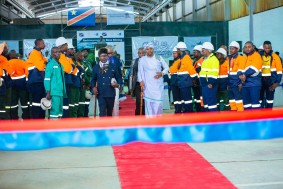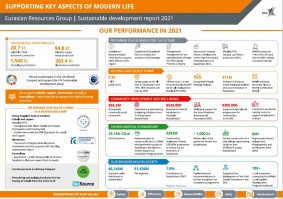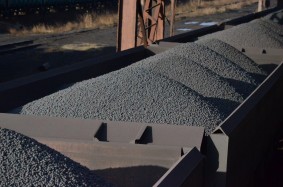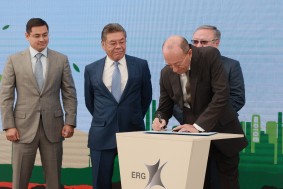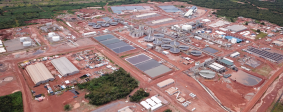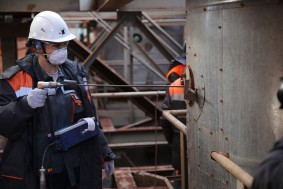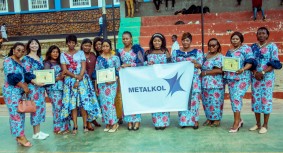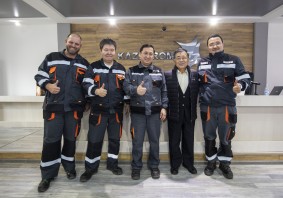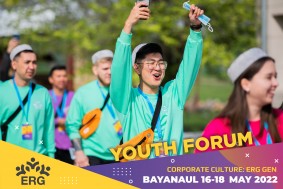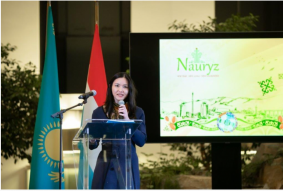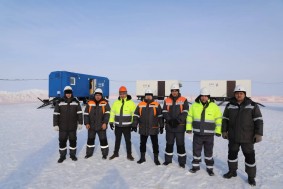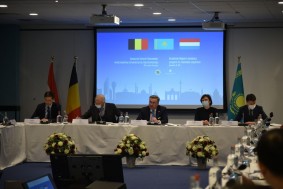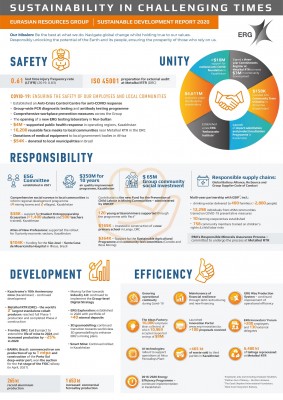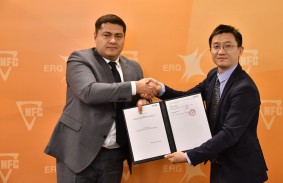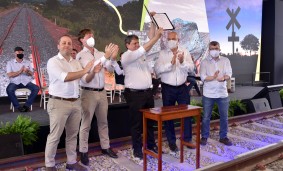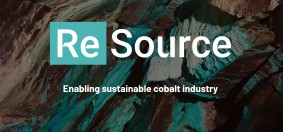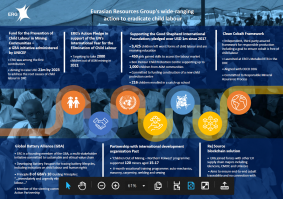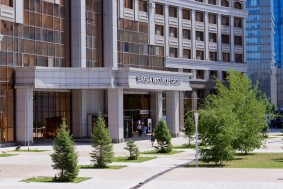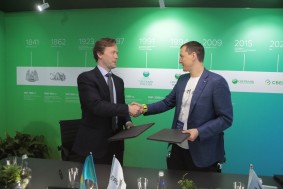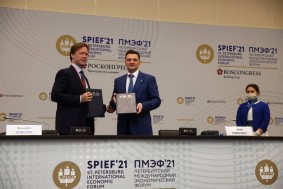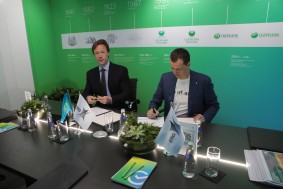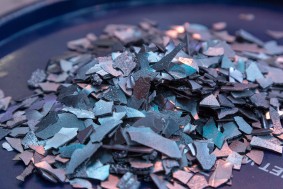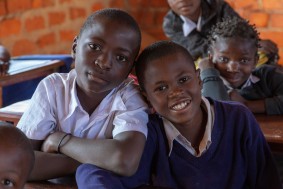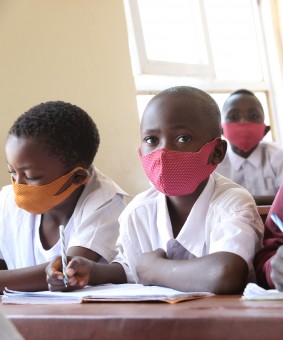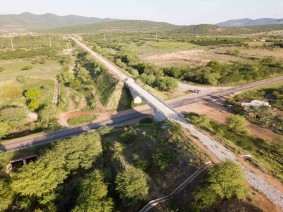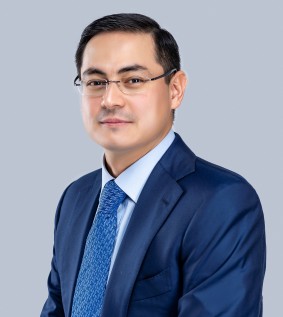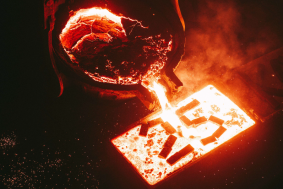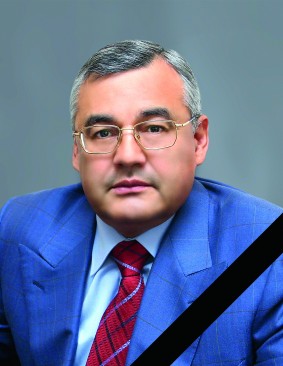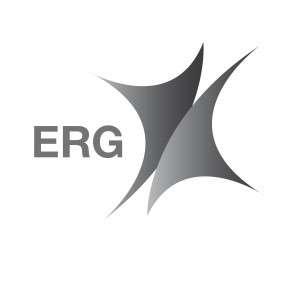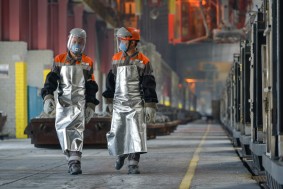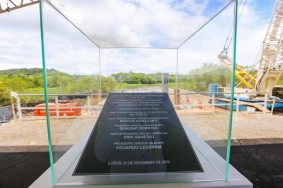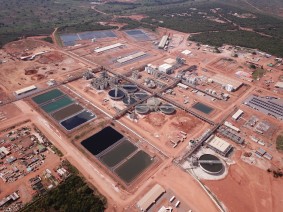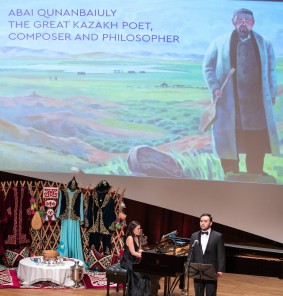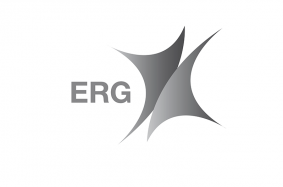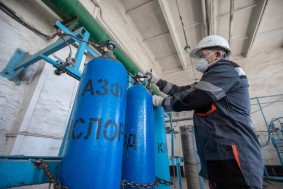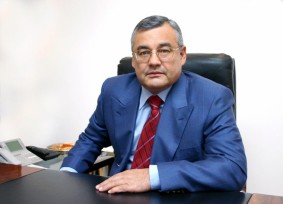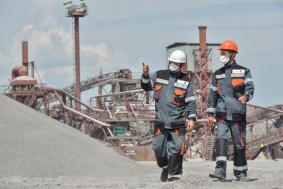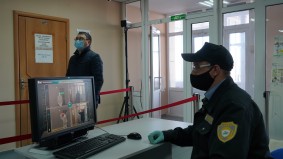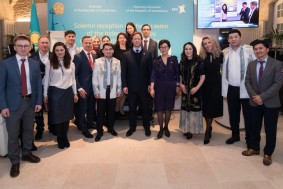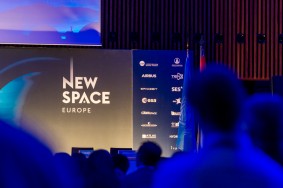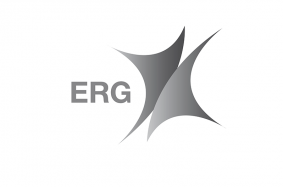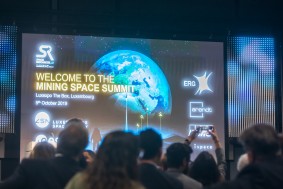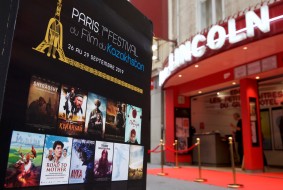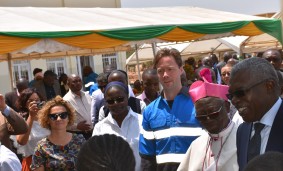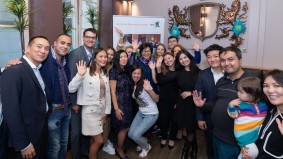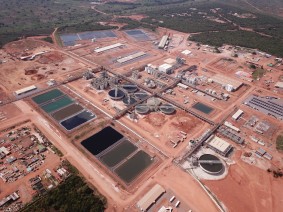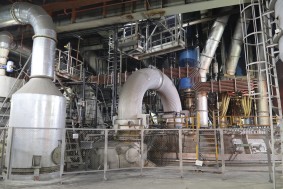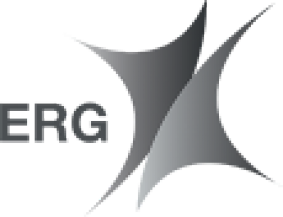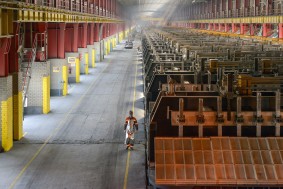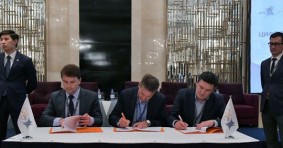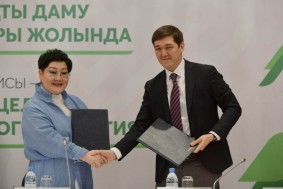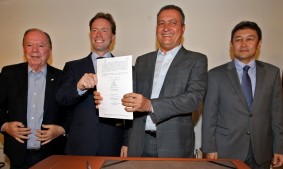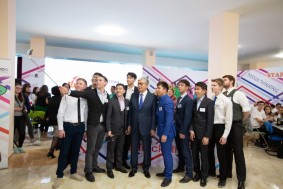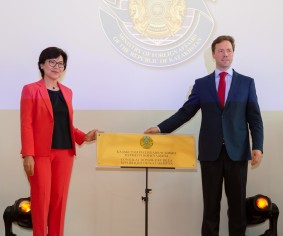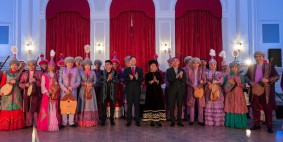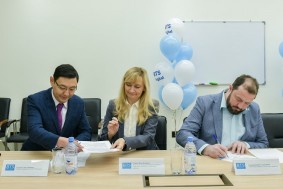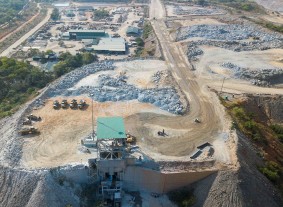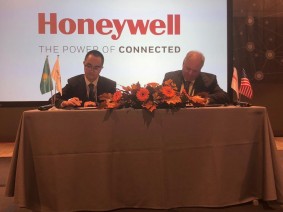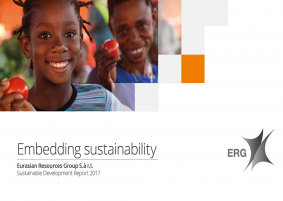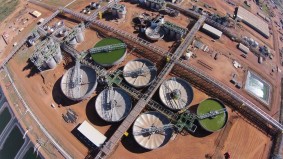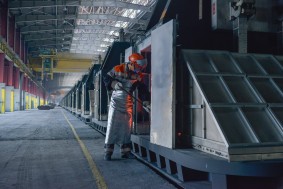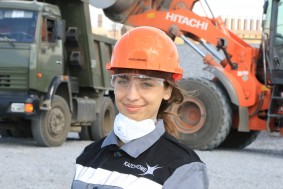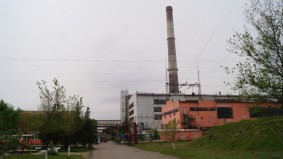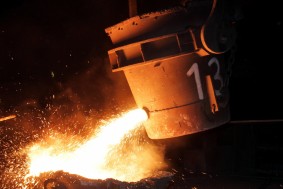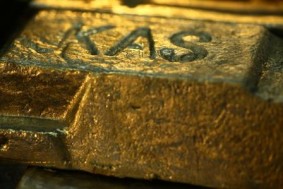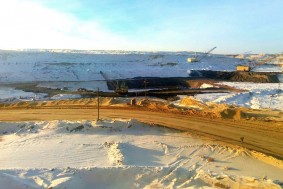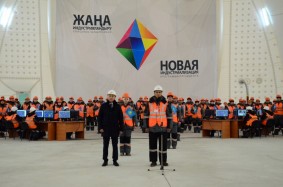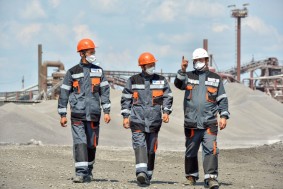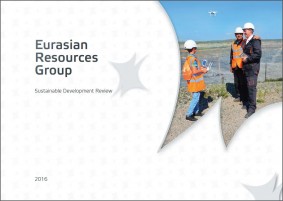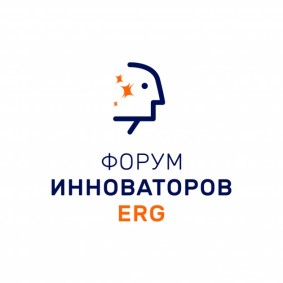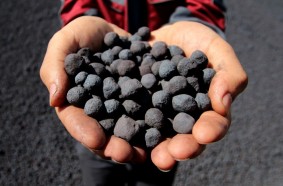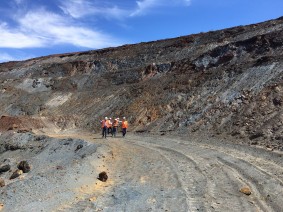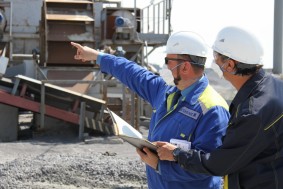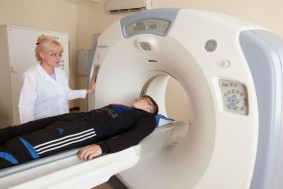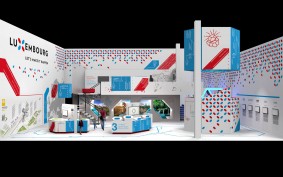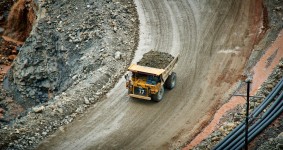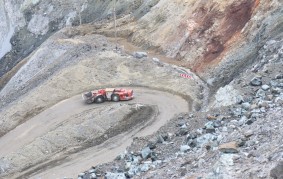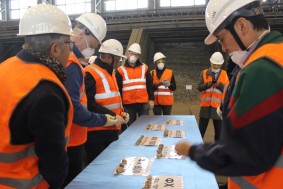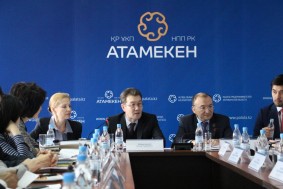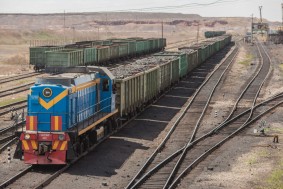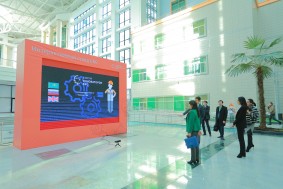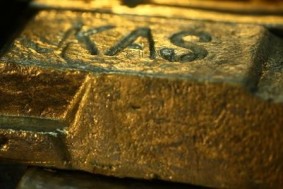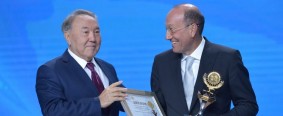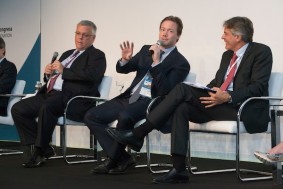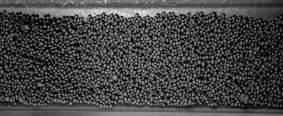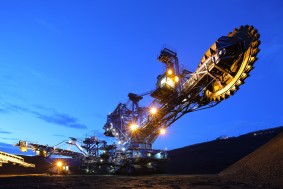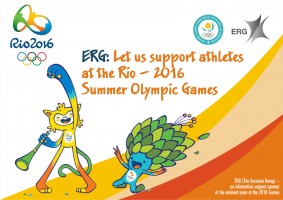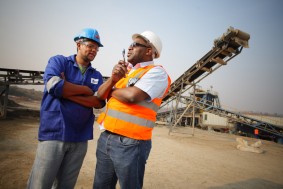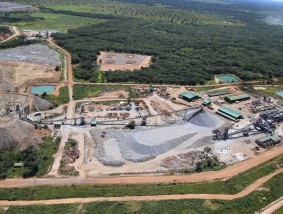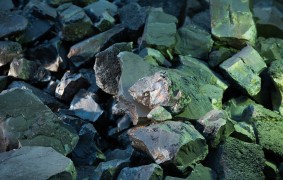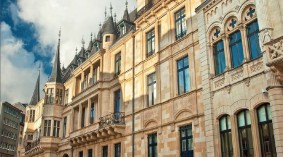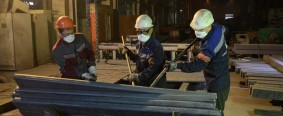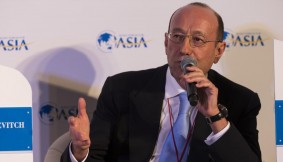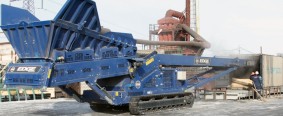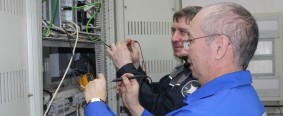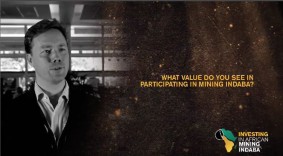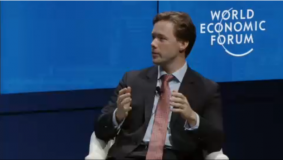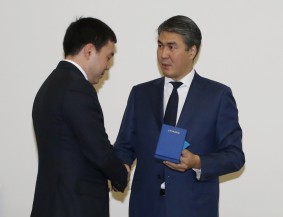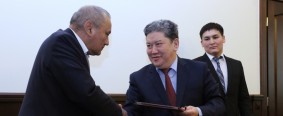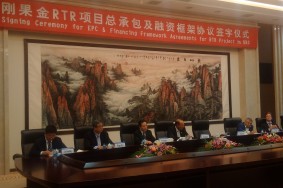Eurasian Resources Group publishes Sustainable Development Report 2018
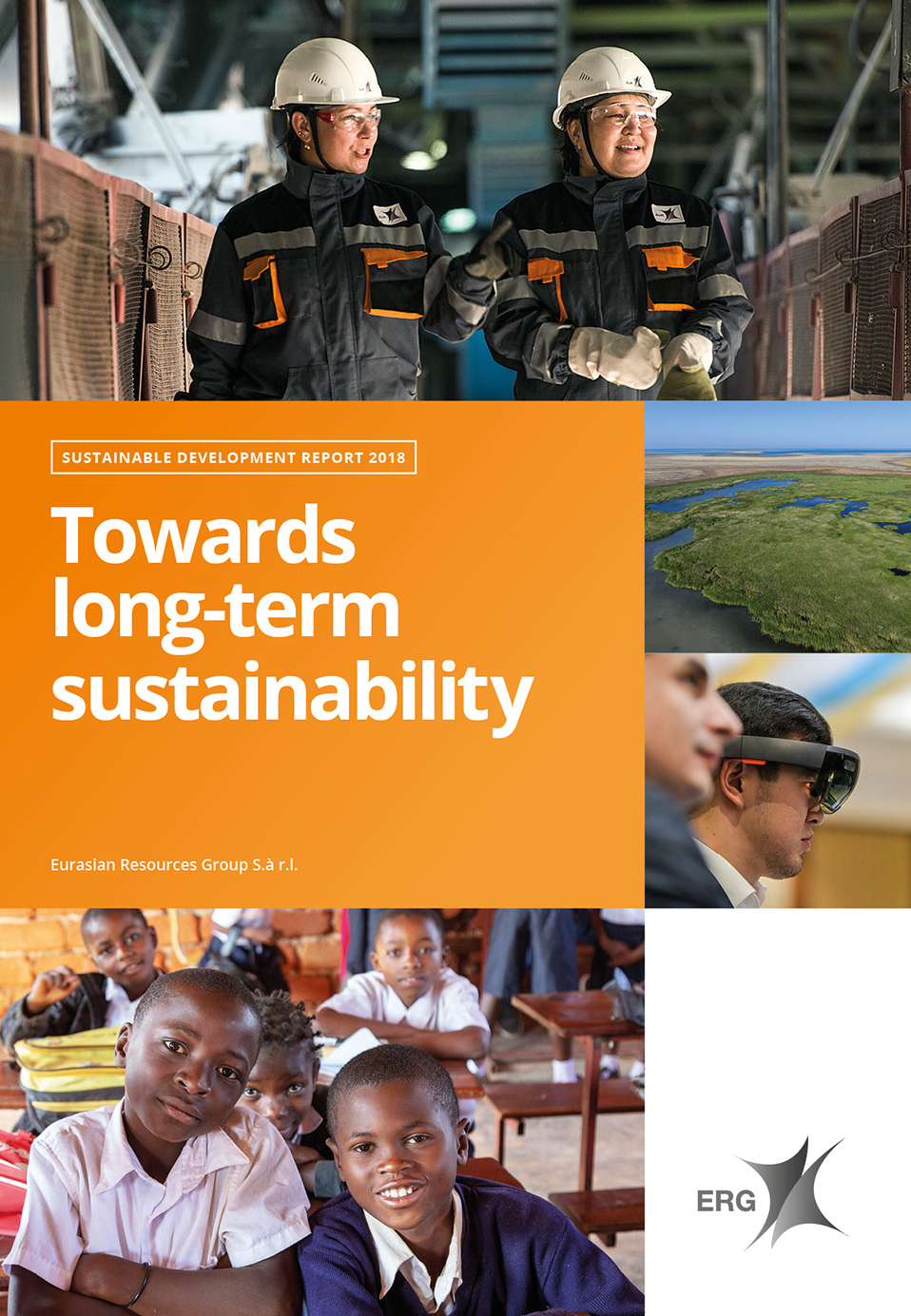
Eurasian Resources Group (“ERG” or “the Group”), a leading diversified natural resources group, is pleased to announce the publication of its Sustainable Development Report (“the Report”) for 2018. The Report highlights further progress in achieving long-term sustainability, which lies at the heart of the Group’s business strategy.
In Kazakhstan, ERG continued to improve its operational performance, supported by – amongst other things – ongoing business transformation, operational efficiency initiatives and the development of its portfolio.
Commenting on the report, Benedikt Sobotka, CEO of ERG, said: “We are focussed on ensuring that our business is in a position to generate value well into the future and for our multiple stakeholders and we have seen a plethora of positive milestones in 2018. Building on our Strategy, we were pleased to join the UN Global Compact at the beginning of 2019 and support key UN initiatives including the Sustainable Development Goals.”
The business’s vision, captured by ERG’s 2025 Strategy, is being supported not only by the Group’s Corporate Values but also by the continuous cultural transformation at the workplace level. ERG has been working closely with international organisations such as the World Economic Forum to champion sustainability and encourage reform across the industry via its involvement with platforms including the Global Battery Alliance and the Partnership Against Corruption Initiative (PACI).
In 2018, as part of the Group’s focus on enhancing overall business efficiency to prepare for the future, a number of continuous improvement programmes were ongoing. These included the ERG Production System, which supports efficiency across the product lifecycle, and the ERG Business System aimed at enhancing business processes. The Group formed a dedicated company, ERG Capital Projects, to support effective project execution and adopted a new, enhanced approach to project due diligence and mine planning. ERG also hosted a regular Innovators’ Forum and further rolled out its Ideas Factory concept collecting ideas from more than 3,000 employees and accepting over 1,600 of them.
The business continued to make improvements to the workplace culture in its enterprises aiming to achieve Zero Harm. In 2018, the LTIFR (lost time injury frequency rate) among ERG’s employees decreased by 15.9% year on year. 13.2 million consecutive LTI-free hours were achieved during the construction phase of Metalkol RTR, a major cobalt and copper operation in the Democratic Republic of the Congo (DRC).
The Group continued to make structural preparations to bring its business in line with the Fourth Industrial Revolution, including a focus on data analytics and the digitalisation of production. To this end, work was underway to implement a single Manufacturing Execution System (MES). ERG launched a pilot project to implement a blockchain-based solution on the IBM Platform to enhance the traceability of its cobalt across the metal’s global supply chain. In Kazakhstan, the Group also developed a partnership with Astana International Financial Centre and its IT and start-up platform, Astana Hub, which incorporates its initiatives to foster new digital solutions that can support ERG’s business.
As part of the global energy transition, ERG commissioned Metalkol RTR, which produces copper and cobalt, products that are key for the global lithium-ion battery sector. The facility will help to improve the local environment via the decontamination of historical tailings in the area. At Metalkol RTR, in line with the principles of responsible production, ERG introduced its Clean Cobalt Framework, an innovative initiative, which comprises seven goals to tackle potential challenges in the production and supply chain, including child labour.
Aiming to help children in the DRC to transition out of mining, the Group also continued to advance its support for the work of the Good Shepherd International Foundation (GSIF) and to the rollout of the ‘Children Out of Mining – Northern Kolwezi’ programme by Pact, an international NGO. As part of cooperation with GSIF, 1,929 children received protection and around 300 women and 200 girls gained trainings for alternative livelihood skills.
ERG’s commitment to responsibility also relates to avoiding and minimising potential negative environmental impacts across various product segments and regions. In 2018, ERG developed a new long-term Air Emissions Strategy, intended to bring the Group’s assets in Kazakhstan closer in line with the EU air quality standards. Energy-saving measures applied across the Group’s operations in Kazakhstan under its 2016-2020 Energy Efficiency Programme resulted in a total reduction in consumption of 2,000Tj of energy in 2018.
In 2019, ERG completed internal risk assessments of tailings dams and defined an action plan, which includes the engagement of third party expertise to support the Group’s risk management efforts. In Brazil, the planned tailings dam at ERG’s Bahia Mineração (BAMIN) integrated iron ore and logistics project was amended from an upstream to a downstream design.
The Group has continued to make a contribution to the socio-economic development and well-being of communities in its key operating regions. In Kazakhstan, STEM laboratories supported by ERG will benefit 9,000 pupils. The Group also encourages young people and job creation through its Student Entrepreneurship Ecosystem Project, which is now operating in nine universities and colleges and saw the participation of 5,000 students.
A similar emphasis on benefitting local communities is also reflected through the Group’s initiatives in Africa and Latin America. In the DRC, ERG is working to expand access to high-quality education but also to improve potable water distribution, thus helping to address major challenges facing local communities. In 2018, the Group invested US$582,000 to provide potable water to local communities using wells and solar-powered water distribution facilities. As part of its agriculture programme, around 500 community members were provided with seeds, equipment and technical support.
In Brazil, ERG also advanced efforts to address clean water shortages and provided 15 households with access to clean water for agricultural use.
The full version of the Report can be found here: https://www.eurasianresources.lu/uploads/1/files/20077_ERG_SR%20ENG%20web2.pdf
***
Details of ERG’s sustainable development journey from 2018 are listed below:
Preparing our business for the future
- Development of the Group 2025 Strategy and start of its implementation
- Further upgrades by leading credit rating agencies Standard & Poor’s and Moody’s
- Savings of US$91.7 m from operational efficiency initiatives in Kazakhstan
- Continued major rebuild of the Aksu Ferroalloy Plant’s smelter furnace №64 to improve furnace productivity by 50% and reduce energy consumption by 20%. The project was commissioned in 2019
- Production of the first copper cathode at Metalkol RTR
- Launch of ERG’s Clean Cobalt Framework at Metalkol RTR in pursuit of excellence in responsible production and sustainability along the cobalt value chain
- Further development of ERG’s strategic integrated iron ore mine, railway and port project BAMIN
- Communication of the Group’s anticorruption policies and procedures to over 12,000 business partners, governance body members and employees
Helping our people thrive
- Reduction of LTIFR among employees by 15.9%
- Achievement of 13.2m consecutive lost time injury-free hours during the construction phase at Metalkol RTR
- Further implementation of a holistic talent management programme in Kazakhstan encompassing ‘Forum for Young ERG Leaders’, League of Professionals and Innovators’ Forum
Community development and wellbeing
- The Group-wide community social investment (CSI) of US$115 m
- Continued support of youth innovation and job creation through the Student Entrepreneurship Ecosystem project in Kazakhstan, with over 5,000 students taking part
- Investment of more than US$235,000 in the establishment of 11 STEM laboratories for 9,000 pupils, in partnership with the local government education authorities and charities
- Launch of a Sustainable Agricultural Programme in partnership with local communities in the DRC Around 500 community members were provided with seeds, equipment and technical support
- Providing community access to clean water through solar-powered installations in the DRC with investment of US$582,000 in 2018
- Helping children in the DRC to transition out of mining through partnerships with the Good Shepherd International Foundation and Pact, an international NGO
- Provision of 15 households in Brazil with access to clean water for agricultural production
Environmental stewardship
- Development of a new long-term Air Emissions Strategy and implementation of air quality monitoring programmes in Kazakhstan
- Recorded savings of over 2000 terajoules as result of energy efficiency initiatives in Kazakhstan
- Completed cross-lifecycle carbon footprinting of aluminum and ferrochrome production in Kazakhstan
- Achievement of a guaranteed supply of energy at Frontier SA and Metalkol RTR through third party agreements
- Sale of 158,000 tonnes of waste worth US$9 m as part of ERG’s ‘Waste into Profit’ programme in Kazakhstan, and reprocessing of 1,328kt of historical tailings at Metalkol RTR in the DRC
- A Group-wide internal assessment of risks associated with tailings dams

